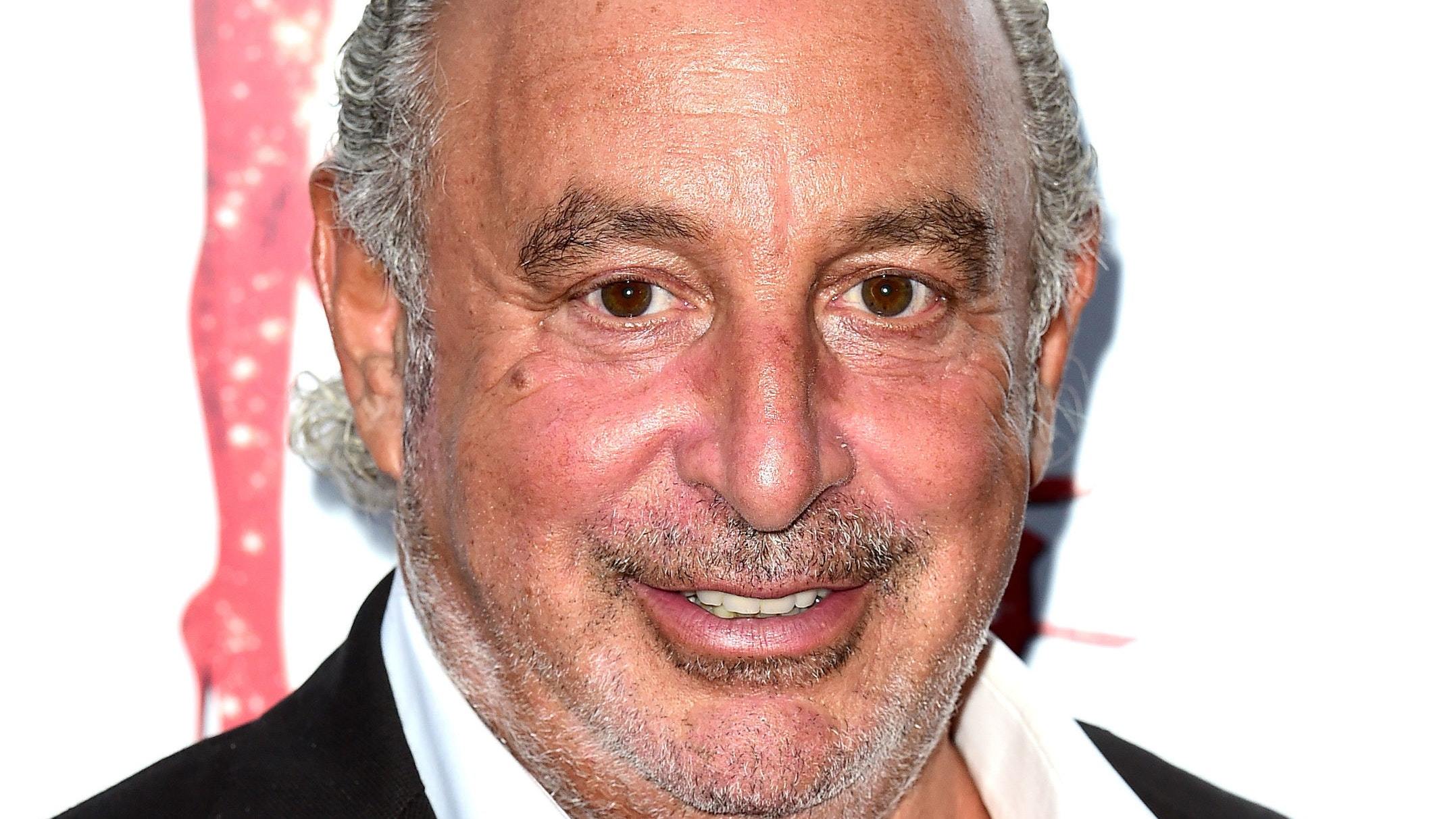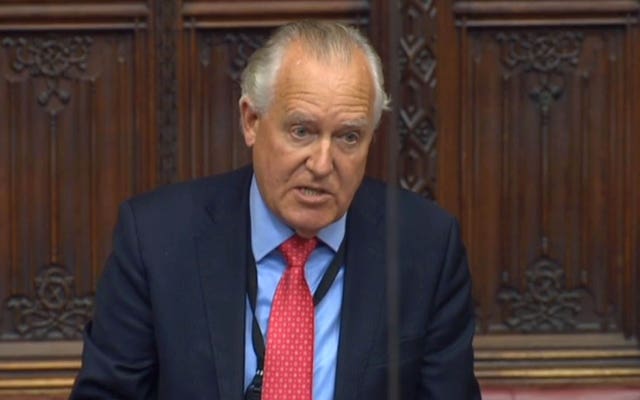
TOPSHOP owner Sir Philip Green has been named in Parliament as the businessman behind an injunction against the Daily Telegraph.
Former Cabinet minister Lord Hain said he had been contacted by someone “intimately involved” in the case and felt it was his duty to use parliamentary privilege to name the retail tycoon.
Lord Hain’s intervention came after Court of Appeal judges temporarily barred the Telegraph from publishing “confidential information” from five employees about a figure the newspaper described as a “leading businessman”.
The paper wants to reveal what it calls “alleged sexual harassment and racial abuse of staff”, who have been prevented from discussing their claims by non-disclosure agreements (NDAs).
The Labour peer told the House of Lords: “Having been contacted by somebody intimately involved in the case of a powerful businessman using non-disclosure agreements and substantial payments to conceal the truth about serious and repeated sexual harassment, racist abuse and bullying which is compulsively continuing, I feel it’s my duty under parliamentary privilege to name Philip Green as the individual in question, given that the media have been subject to an injunction preventing publication of the full details of a story which is clearly in the public interest.”
After his statement was made in the chamber and broadcast on parliamentlive.tv, Lord Hain confirmed that his statement referred to the Topshop boss.
On Wednesday Theresa May pledged to hasten measures to improve regulation around so-called gagging clauses in response to questions about the case.
The Prime Minister said some employers were using non-disclosure agreements (NDAs) “unethically” as she criticised “abhorrent” sexual harassment in the workplace.
Speaking in the House of Commons on Wednesday, Labour MP Jess Phillips asked Mrs May to comment on the use of NDAs to “silence” accusers, adding: “It seems that our laws allow rich and powerful men to pretty much do whatever they want as long as they can pay to keep it quiet.”
This is the moment Peter Hain named Sir Philip Green as the "powerful businessman" at the centre of the Telegraph's "British #MeToo" story pic.twitter.com/Nm19w1BFvR
— Stephen Jones (@SteveJonesPA) October 25, 2018
The Prime Minister said some employers were using non-disclosure agreements (NDAs) “unethically” as she criticised “abhorrent” sexual harassment in the workplace.
Speaking in the House of Commons on Wednesday, Labour MP Jess Phillips asked Mrs May to comment on the use of NDAs to “silence” accusers, adding: “It seems that our laws allow rich and powerful men to pretty much do whatever they want as long as they can pay to keep it quiet.”
The Prime Minister said she would bring forward consultation measures to improve regulation and make it “absolutely explicit” when the contracts cannot be enforced.
Mrs May’s official spokesman later said that NDAs “should never be used to cover up criminal activity”, adding that details of the work started earlier this year would be announced “imminently”.
The appeal judges ruled it is likely that the boss could establish that a “substantial” part of the information was obtained through “breach of duty of confidentiality” by those who broke the NDAs or were aware of them.
In August, High Court judge Mr Justice Haddon-Cave refused to gag the newspaper but the executive – identified in court papers as ABC – and managers at the two companies mounted a challenge.
Master of the Rolls Sir Terence Etherton, Lord Justice Underhill and Lord Justice Henderson outlined their decision in a ruling published on Tuesday.
In all five cases complaints had been “compromised by settlement agreements” under which “substantial payments” were made to the employees who had complained, they wrote.
Judges said the claimants felt that information “had been disclosed to the newspaper by one or more of the complainants, or by other employees who were aware of the information and of the non-disclosure agreements”.
They said there was a “real prospect” that publication would cause substantial and possible irreversible harm to the claimants.
The judges granted “an interim injunction preserving the confidentiality of the information pending a full trial”.

Enjoy the convenience of having The Sunday Post delivered as a digital ePaper straight to your smartphone, tablet or computer.
Subscribe for only £5.49 a month and enjoy all the benefits of the printed paper as a digital replica.
Subscribe
